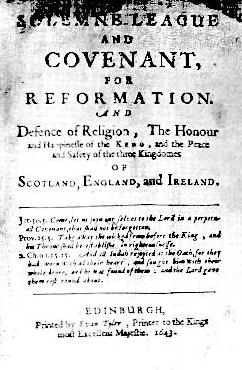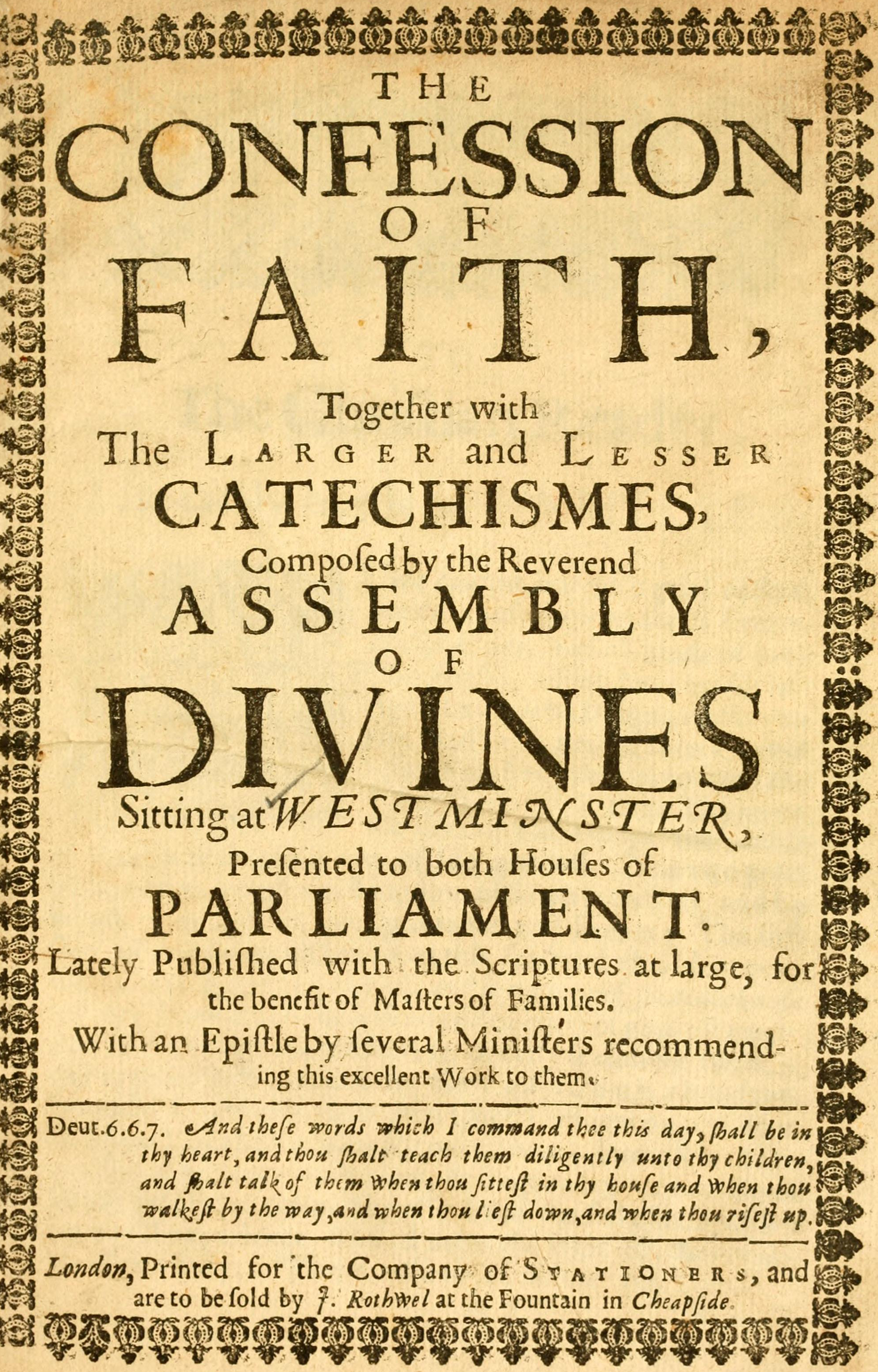|
Reformed Presbyterian Churches
The Reformed Presbyterian Global Alliance is a communion of Presbyterians originating in Scotland in 1690 when its members refused to conform to the establishment of the Church of Scotland. The Reformed Presbyterian churches collectively have approximately 9,500 members worldwide in Northern Ireland, the Republic of Ireland, Scotland, France, the United States of America, Canada, Japan, South Sudan, and Australia. Organization and leadership The Reformed Presbyterian churches are presbyterian in polity; members of each congregation elect elders who must be male, as they believe the Bible requires, and who must also be members of the congregation. These elders, along with a minister or pastor, make up the "session" governing a congregation. Ministers are known as "teaching elders"; other elders are known as "ruling elders." The teaching elder is not in authority over the ruling elders, nor are the ruling elders in authority over the teaching elder. The Reformed Presbyterian ... [...More Info...] [...Related Items...] OR: [Wikipedia] [Google] [Baidu] |
Calvinism
Reformed Christianity, also called Calvinism, is a major branch of Protestantism that began during the 16th-century Protestant Reformation. In the modern day, it is largely represented by the Continental Reformed Christian, Presbyterian, Congregational, and Waldensians traditions, as well as parts of the Methodist, Anglican (known as "Episcopal" in some regions) and Baptist traditions. Reformed theology emphasizes the authority of the Bible and the sovereignty of God, as well as covenant theology, a framework for understanding the Bible based on God's covenants with people. Reformed churches emphasize simplicity in worship. Several forms of ecclesiastical polity are exercised by Reformed churches, including presbyterian, congregational, and some episcopal. Articulated by John Calvin, the Reformed faith holds to a spiritual (pneumatic) presence of Christ in the Lord's Supper. Emerging in the 16th century, the Reformed tradition developed over several genera ... [...More Info...] [...Related Items...] OR: [Wikipedia] [Google] [Baidu] |
Protestant
Protestantism is a branch of Christianity that emphasizes Justification (theology), justification of sinners Sola fide, through faith alone, the teaching that Salvation in Christianity, salvation comes by unmerited Grace in Christianity, divine grace, the priesthood of all believers, and the Bible as the sole infallible source of authority for Christian faith and practice. The five solae, five ''solae'' summarize the basic theological beliefs of mainstream Protestantism. Protestants follow the theological tenets of the Reformation, Protestant Reformation, a movement that began in the 16th century with the goal of reforming the Catholic Church from perceived Criticism of the Catholic Church, errors, abuses, and discrepancies. The Reformation began in the Holy Roman Empire in 1517, when Martin Luther published his ''Ninety-five Theses'' as a reaction against abuses in the sale of indulgences by the Catholic Church, which purported to offer the remission of the Purgatory, temporal ... [...More Info...] [...Related Items...] OR: [Wikipedia] [Google] [Baidu] |
Westminster Shorter Catechism
The Westminster Shorter Catechism is a catechism written in 1646 and 1647 by the Westminster Assembly, a synod of English and Scottish theologians and laymen intended to bring the Church of England into greater conformity with the Church of Scotland. The assembly also produced the Westminster Confession of Faith and the Westminster Larger Catechism. A version without Scripture citations was completed on 25 November 1647 and presented to the Long Parliament, and Scripture citations were added on 14 April 1649. Background Catechesis is a practice of teaching the Christian faith. New converts to Christianity were taught through lectures during the first four centuries of the Church's existence, but this practice was largely abandoned with the rise of Christendom. Christian humanists and Protestant Reformers sought to revive the practice, including the Reformed. John Calvin's Genevan Catechism was especially influential among the British Reformed. The most popular British cate ... [...More Info...] [...Related Items...] OR: [Wikipedia] [Google] [Baidu] |
Westminster Larger Catechism
The Westminster Larger Catechism, along with the Westminster Shorter Catechism, is a central catechism of Calvinists in the English tradition throughout the world. History In 1643 when the Long Parliament of England called the Westminster Assembly to produce the Westminster Confession, it also asked for a directory of "catechising". The Assembly asked Herbert Palmer to produce a draft of the Larger Catechism. Robert Baillie and other Scottish delegates found the work disappointing. In December 1643 a committee was formed to write the Catechism. In January 1647 the Assembly gave up writing one catechism and split it into two. The Westminster Shorter Catechism was to be "easier to read and concise for beginners" and the Larger Catechism was to be "more exact and comprehensive". The Catechism was completed by the Westminster Assembly in 1647. It was then adopted by the General Assembly of the Church of Scotland in 1648 and (with modifications relating to the civil magistr ... [...More Info...] [...Related Items...] OR: [Wikipedia] [Google] [Baidu] |
Westminster Confession Of Faith
The Westminster Confession of Faith, or simply the Westminster Confession, is a Reformed confession of faith. Drawn up by the 1646 Westminster Assembly as part of the Westminster Standards to be a confession of the Church of England, it became and remains the " subordinate standard" of doctrine in the Church of Scotland and has been influential within Presbyterian churches worldwide. In 1643, the English Parliament called upon "learned, godly and judicious Divines" to meet at Westminster Abbey in order to provide advice on issues of worship, doctrine, government and discipline of the Church of England. Their meetings, over a period of five years, produced the confession of faith, as well as a Larger Catechism and a Shorter Catechism. For more than three hundred years, various churches around the world have adopted the confession and the catechisms as their standards of doctrine, subordinate to the Bible. For the Church of Scotland and the various denominations which spring ... [...More Info...] [...Related Items...] OR: [Wikipedia] [Google] [Baidu] |
Biblical Inerrancy
Biblical inerrancy is the belief that the Bible, in its original form, is entirely free from error. The belief in biblical inerrancy is of particular significance within parts of evangelicalism Evangelicalism (), also called evangelical Christianity or evangelical Protestantism, is a worldwide, interdenominational movement within Protestantism, Protestant Christianity that emphasizes evangelism, or the preaching and spreading of th ..., where it is formulated in the Chicago Statement on Biblical Inerrancy. In contrast to Evangelicalism in the United States, American evangelicalism, it has minimal influence on contemporary Evangelicalism#Great Britain, British evangelicalism. Some groups equate inerrancy with biblical infallibility or with the necessary clarity of scripture; others do not.McKim, DK, ''Westminster dictionary of theological terms'', Westminster John Knox Press, 1996. The Catholic Church also holds a limited belief in biblical inerrancy, affirming that the ... [...More Info...] [...Related Items...] OR: [Wikipedia] [Google] [Baidu] |
Biblical Inspiration
Biblical inspiration is the doctrine in Christian theology that the human writers and canonizers of the Bible were led by God with the result that their writings may be designated in some sense the word of God. This belief is traditionally associated with concepts of the biblical infallibility and the internal consistency of the Bible. ''Theopneustos'' At 2 Tim 3:16 (NRSV), it is written: "All scripture is inspired by God 'theopneustos''and is useful for teaching". When Jerome translated the Greek text of the Bible into the language of the Vulgate, he translated the Greek ''theopneustos'' (θεόπνευστος) of 2 Timothy 3:16 as ''divinitus inspirata'' ("divinely breathed into"). Some modern English translations opt for "God-breathed" ( NIV) or "breathed out by God" ( ESV). The -tos ending in the Greek ''theopneustos'' also designates a passive construct whereby the subject God is breathing out the object ( scripture). Theologian C. H. Dodd suggests that it is ... [...More Info...] [...Related Items...] OR: [Wikipedia] [Google] [Baidu] |
Biblical Authority
In Christianity, the term biblical authority refers to two complementary ideas: * the extent to which one can regard the commandments and doctrines within the Bible, Old and New Testament scriptures as authoritative over humans' belief and conduct; * the extent to which biblical propositions are accurate in matters of history and science. The case for biblical authority stems from the claim that God in Christianity, God has Revelation, revealed himself in written form through Authorship of the Bible, human authors and that the information contained in Christian biblical canon, canonical books is not of human origin. It entails, but is not exhausted by, questions raised by biblical inerrancy, biblical infallibility, biblical interpretation, biblical criticism, and biblical law in Christianity. While there are many factions within Christianity as a religion, they commonly define the Bible as the word of authority as a direct communication of the word of God. Different List of Christ ... [...More Info...] [...Related Items...] OR: [Wikipedia] [Google] [Baidu] |
Nantes
Nantes (, ; ; or ; ) is a city in the Loire-Atlantique department of France on the Loire, from the Atlantic Ocean, Atlantic coast. The city is the List of communes in France with over 20,000 inhabitants, sixth largest in France, with a population of 320,732 in Nantes proper and a metropolitan area of nearly 1 million inhabitants (2020). With Saint-Nazaire, a seaport on the Loire estuary, Nantes forms one of the main north-western French metropolitan agglomerations. It is the administrative seat of the Loire-Atlantique Departments of France, department and the Pays de la Loire Regions of France, region, one of 18 regions of France. Nantes belongs historically and culturally to Brittany, a former Duchy of Brittany, duchy and Province of Brittany, province, and Reunification of Brittany, its omission from the modern administrative region of Brittany is controversial. Nantes was identified during classical antiquity as a port on the Loire. It was the seat of a bishopric at the ... [...More Info...] [...Related Items...] OR: [Wikipedia] [Google] [Baidu] |
Minister (Christianity)
In Christianity, a minister is a person authorised by a church body, church or other religious organization to perform functions such as teaching of beliefs; leading services such as weddings, baptisms or funerals; or otherwise providing spiritual guidance to the community. The term is taken from Latin ''minister'' ("servant", "attendant"). In some church traditions the term is usually used for people who have been ordained, but in other traditions it can also be used for non-ordained. In the Catholic Church, the Eastern Orthodox Church, the Oriental Orthodox Church, Anglicanism and Lutheranism, the concept of a priesthood is emphasized, though in the Church of England there are nearly as many non-ordained licensed lay ministers as there are paid clergy. In other traditions such as Baptist, Methodist, and Reformed Christianity, Reformed groups like Congregationalists and Presbyterians, the term "minister" usually refers to a member of the ordination, ordained clergy who leads a ... [...More Info...] [...Related Items...] OR: [Wikipedia] [Google] [Baidu] |
Complementarianism
Complementarianism is a theological view in some denominations of Christianity, Rabbinic Judaism, and Islam, that men and women have different but complementary roles and responsibilities in marriage, family, and religious life. Some Christians interpret the Bible as prescribing a complementary view of gender, and therefore adhere to gender-specific roles that preclude women from specific functions of ministry within the community. Though women may be precluded from certain roles and ministries, they still hold foundational equality in value and dignity. The phrase used to describe this is "ontologically equal, functionally different." Within a Christian marital relationship, complementarianism prescribes headship and servant leading roles to men, and support roles to women, being based upon the interpretation of certain biblical passages. One precept of complementarianism is that while women may assist in decision-making processes, the ultimate authority for the decision lies in ... [...More Info...] [...Related Items...] OR: [Wikipedia] [Google] [Baidu] |










